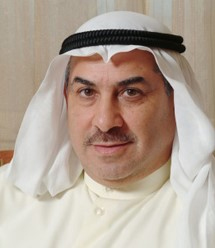05/09/2019
05/09/2019

LAST week I wrote about the crisis of Kashmir with the Indian government. Since the issuance of the declaration of independence of India in 1947 and the separation of Pakistan, another resolution was issued regarding the division of some states. According to this resolution, the states with majority Muslims should be joined with Pakistan, and those with majority Hindus should be joined with India. This resolution was enforced in all states across the border apart from Jammu and Kashmir, which is the only state in India with a Muslim-majority population.
For the past 70 years, India has been insisting on keeping this state even if the matter required military action similar to what is currently transpiring in this devastated state.
Today we will talk about some aspects of the Kashmiri plight under the Indian rule. We used to consider India as a model of real democracy from the days of the first Prime Minister of the Republic of India Jawaharlal Nehru, his daughter Indira Gandhi, and those who came after them as prime ministers through parliamentary elections and after acquiring majority votes from party members or the president.
Instinctively, democracy means freedom of choice, speech and opinion, equality, communication, media etc.
According to news about Kashmir, the state is currently going through a very tough time due to lack of telephone and internet services, which were disconnected by the Indian authority, let alone the major restrictions imposed on exchange of information within the state.
In the past, the Indian authority used to ban the use of the Internet on mobile phones in Jammu and Kashmir whenever there was a threat of violation of laws and disruption of the general order of the state.
However, this ban did not involve landline and Internet services which operated normally, thereby allowing the information media to follow up its usual operations without any obstacles.
Unfortunately, the current conditions of this state is more difficult with the Indian government’s stringent oversight on any news report, as well as its tough measures against journalists and correspondents within the state.
A journalist, who adopted the nickname “Ruwab Ali” for the sake of his safety and security, narrated how he decided to visit one of the prominent political leaders in Kashmir. Upon arrival in the area where the political leader resides, he found a huge security presence around the leader’s headquarters. The guards prevented people from walking in to present their issues and requests.
Ruwab Ali came up with an idea that would enable him to enter and meet the leader. All he did was buy some essential items from a convenience store and pretended to be an aide of the Kashmiri prominent leader.
He said, “The plan worked successfully. I met the leader and managed to hold a very brief interview with him, after which I felt I completed my mission”.
Our brothers in humanity and our Indian brothers should know that democracy and its concepts are based on action and not just words. These concepts are inseparable. However above all, democracy is about freedom of expression, opinion and communication.
Nonetheless, the concept of democracy is what the Indian government has forcefully stepped on with its heavy military boots, preventing the residents of Kashmir from expressing their inner feelings and communicating among themselves and with the outside world.
Democracy is not as per demand or rather “democracy a la carte”.
By Ali Ahmed Al-Baghli - Former Minister of Oil


